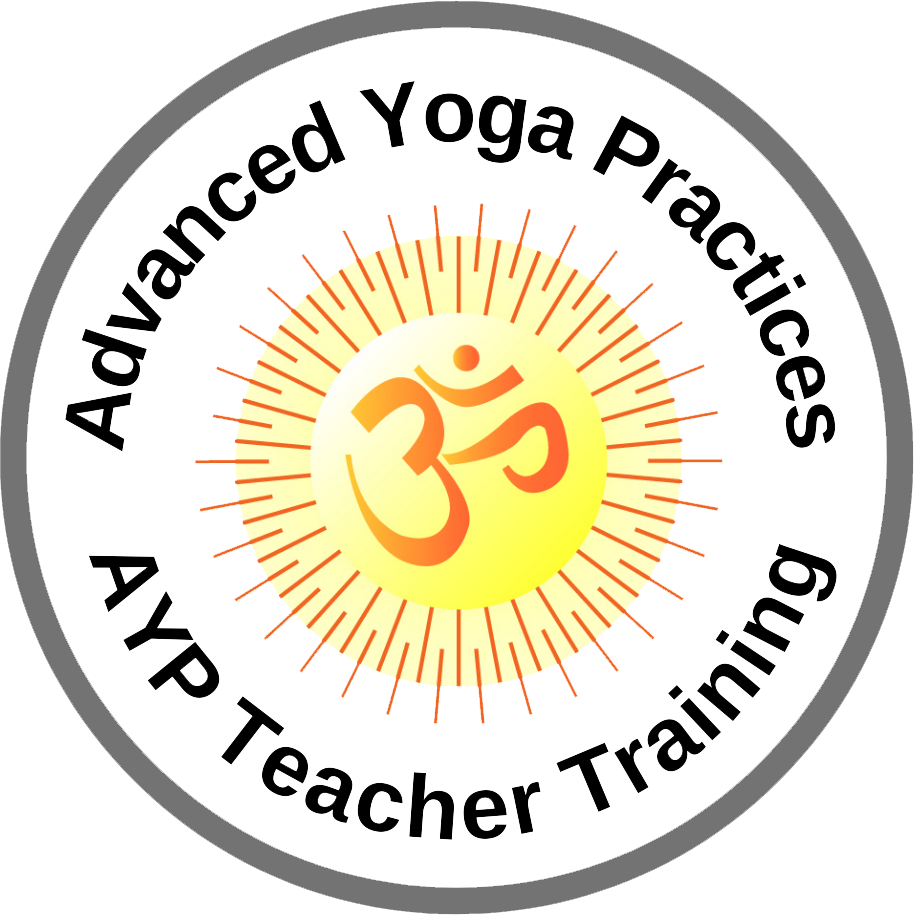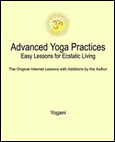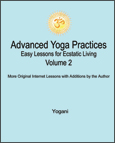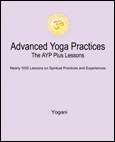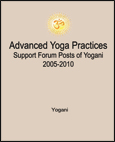|
Public Home | Plus Home | Main Lessons | Tantra Lessons | Public Forum | Plus Forum | Downloads | Books Topic Paths | Search | Training-Retreats | Testimonials | Survey | Interviews | MultiMedia | Contact | Donate |
|
Advanced Yoga Practices Note: For the Original Internet Lessons with additions, see the AYP Easy Lessons Books. For the Expanded and Interactive Internet Lessons, AYP Online Books, Audiobooks and more, see AYP Plus. Lesson 362 - Ideological Jnana Yoga (Advaita-Vedanta) (Audio)
From: Yogani New Visitors: It is recommended you read from the beginning of the archive, as previous lessons are prerequisite to this one. The first lesson is, "Why This Discussion?"
A: Yes, there is a difference between the AYP approach to Jnana/Advaita and the traditional understanding of what it is about. This difference arises for the singular purpose of increasing access. All approaches rely on prerequisites, whether they are recognized or not. AYP is about covering prerequisites for as many people as possible. The goal is to leave no one to rely only on an inherent intellectual proclivity for finding salvation. Rather, with a longing heart, anyone can come into self-realization, either now or later, if provided enough effective tools for doing so. It is only about attending to the nuts and bolts of human spiritual awakening (of which jnana/advaita is a part), and abiding self-realization will fly on the wings of radiant ecstatic bliss. If the view is that this is the reality already, so much the better, but no one is asked to pretend that it is. I am not much interested in an "AYP point of view," or any other point of view. I am interested in helping everyone open doors. For this, the integration and transcendence of all points of view is essential. If this is in agreement with the sages of old, that's great. And if not, well, we are still going ahead with it. Therefore, I do not see jnana/advaita as a specialized stand-alone approach that is only for those of a particular intellectual or philosophical predisposition. At the same time, I do not see it as a productive path for beginners either, because few are naturally inclined this way. One does not become a jnani/advaitan simply by being exposed to it, though many might convince themselves otherwise. A lot of non-relational self-inquiry is far more likely. This is not to completely deny a stand-alone approach relying on the intellect. Surely there are a few who are well-suited to it. The sincere spiritual desire (bhakti) involved will contribute much more than the intellect will. Please know this. With the pre-cultivation of abiding inner silence, much of the frustration and futility that occurs in an intellect-based approach can be by-passed. This is a fact that has been demonstrated again and again. Issue is taken with a common aberration, which we can call "ideological jnana/advaita." When jnana/advaita claims exclusivity and superiority over a broad range of yogic methods, then you must expect some push-back, for that is ideological posturing. There are certainly those (including the great sages) who have recognized the necessity for prerequisites, and this observation is obviously not about them. However, for many others, jnana/advaita is adopted as a "magic bullet" ideology that breeds a false sense of sectarian superiority, which, ironically, is duality to the extreme. True non-duality is the way of absolute inclusion, which is the opposite. So, regardless of our persuasion, it is good if we can ask ourselves regularly, "Am I in love with enlightenment, or only with 'an idea' of enlightenment?" If it is the latter, and we are not applying systematic means for transcending it (technique or non-technique), we are at risk of becoming a hazard to ourselves and others. While jnana/advaita may seem an innocent endeavor to its most inspired aspirants, an arena that promises "instant enlightenment" for earnest hearts and minds, it also, with its ideological matter-of-factness, often finds itself debunking the realms of spiritual practice that benefit the vast majority of the population. This does not help anyone. I'm not much concerned about it. We are just going to keep working on the prerequisites, and the rest will take care of itself. The truth will prevail. It is not about "this or that." There is only This, which we also call That. The guru is in you. Discuss this Lesson in the AYP Plus Support Forum Note: For detailed discussion on the practical utilization of self-inquiry, and on how to avoid ineffective uses of self-inquiry, see the Self-Inquiry book and the Liberation book, and AYP Plus. |
|
|
|
Join the Mail List:
AYP Retreats
eBooks - PDF, EPUB
FREE eBooks with
SAVE with Bundled
|







